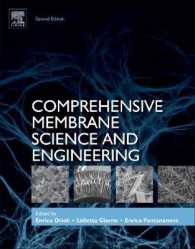- ホーム
- > 洋書
- > 英文書
- > Politics / International Relations
Full Description
Now in an updated edition, this groundbreaking study develops a new approach to understanding the formation of the postrevolutionary state in Mexico. Adam David Morton links the rise and demise of the modern Mexican state to ongoing forms of class struggle that have shaped and restructured state and civil society. He thus sheds valuable interdisciplinary light on debates on state formation by recovering radical tools of analysis, such as uneven development and class struggle, for the wider study of past and present politics in Mexico and, more broadly, Latin America. A substantive new epilogue engages the main theoretical debates that have emerged since the book was first published while also exploring the dominant geographies of power and resistance that are shaping state space in Mexico in the twenty-first century.
Contents
Chapter 1Modern Mexico Part I: Constructing Revolution and State in Modern Mexico Chapter 2: Mexican Revolution, Primitive Accumulation, Passive Revolution Chapter 3: Capital Accumulation, State Formation, and Import Substitution Industrialization Chapter 4: Neoliberalism and Structural Change within the Global Political Economy of Uneven Development Part II: Contesting Revolution and State in Modern Mexico Chapter 5: Intellectuals and the State: A Critical Social Function or in the Shadow of the State? Chapter 6: The Political Economy of Democratization and Democratic Transition Chapter 7: Uneven Agrarian Development and the Resistance of the EZLN Chapter 8: Conclusion: Permanent Passive Revolution? Epilogue: Telescoping Passive Revolution Bibliography






